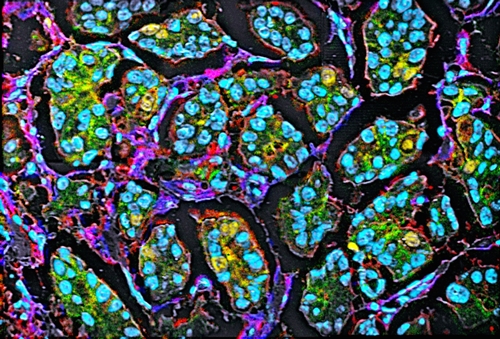15 September 2015. The biopharmaceutical company Celgene Corp. is collaborating with a consortium of university protein engineering labs to identify targets for antibodies that harness the immune system to treat cancer. The deal provides Celgene with an option to license antibody candidates addressing cancer targets from the consortium, known as Recombinant Antibody Network, for which Celgene is paying $25 million.
Recombinant Antibody Network focuses on recombinant or engineered antibodies, with the goal of systematically producing and validating a set of antibodies reflecting the entire collection of proteins in humans. In addition, the consortium aims to make processes for identifying antibody targets and producing synthetic antibodies, more systematic with high-throughput analytical and production technologies, including robotics, that generate recombinant antibodies from cloned synthetic genes.
Recombinant Antibody Network combines resources of labs at University of California in San Francisco, University of Chicago, and University of Toronto studying protein chemistry and biology, particularly design of synthetic molecules that improve on natural protein functions. The consortium reunites former colleagues working in protein engineering at Genentech Inc., now part of the pharmaceutical company Roche: Sachdev Sidhu at University of Toronto, Anthony Kossiakoff at University of Chicago, and James Wells at UC-San Francisco.
The deal is the first agreement of its kind for the consortium. In previous work, Recombinant Antibody Network, or RAN, identified thousands of antibodies addressing signaling molecules used by cells to control production of proteins, that the consortium says was made possible by its more efficient processes and robotic technologies.
The collaboration with Celgene, in Summit, New Jersey, expects to adopt the same approach to signaling proteins to identify targets on cell surfaces for antibodies related to cancer and immune-system disorders, leading to specific licensing opportunities for the company. A large part of Celgene’s current product portfolio and R&D pipeline is therapies for cancer.
“The RAN consortium has developed an automated, antibody engineering pipeline that enables high-throughput generation and validation of high-performance recombinant antibodies, at an unprecedented scale,” says Wells in a university statement. “This is a unique opportunity to partner with a top biopharmaceutical company to exploit these capabilities on extracellular targets in the discovery and development of new therapies for treating cancer.”
Read more:
- Cancer Labs Crowdsource Drug Discovery
- Grant Funds Research on Nanotech Cancer Treatments
- Allied-Bristol Licensing Immunotherapy Technology
- Antibodies to Treat Cancer Complication Licensed to Pharma
- Magnetic Nanoparticles Found to Boost Immunotherapy
* * *


 RSS - Posts
RSS - Posts
You must be logged in to post a comment.